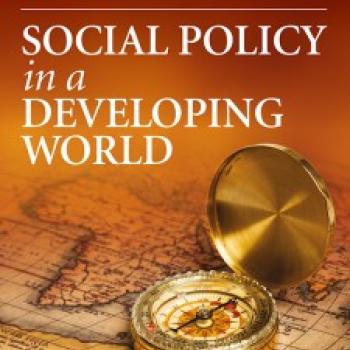
This chapter focuses on understanding the impact of conditionality within particular social protection instruments, drawing on a wider debate and citing evidence from the Young Lives longitudinal study of childhood poverty. The chapter draws substantially on Porter with Dornan (2010). We begin by considering some of the different types of schemes often used to deliver social protection, with a discussion of the conditionalities implied by each. In particular, we document the positive effects for beneficiaries but also possible unintended and negative consequences for vulnerable household members.
ReferencePaul Dornan and Catherine Porter (2013) ' The Implications of Conditionality in Social Assistance Programmes', in Rebecca Surender and Robert Walker (eds.) Social Policy in a Developing World. Edward Elgar Publishing.

This chapter focuses on understanding the impact of conditionality within particular social protection instruments, drawing on a wider debate and citing evidence from the Young Lives longitudinal study of childhood poverty. The chapter draws substantially on Porter with Dornan (2010). We begin by considering some of the different types of schemes often used to deliver social protection, with a discussion of the conditionalities implied by each. In particular, we document the positive effects for beneficiaries but also possible unintended and negative consequences for vulnerable household members.
ReferencePaul Dornan and Catherine Porter (2013) ' The Implications of Conditionality in Social Assistance Programmes', in Rebecca Surender and Robert Walker (eds.) Social Policy in a Developing World. Edward Elgar Publishing.

